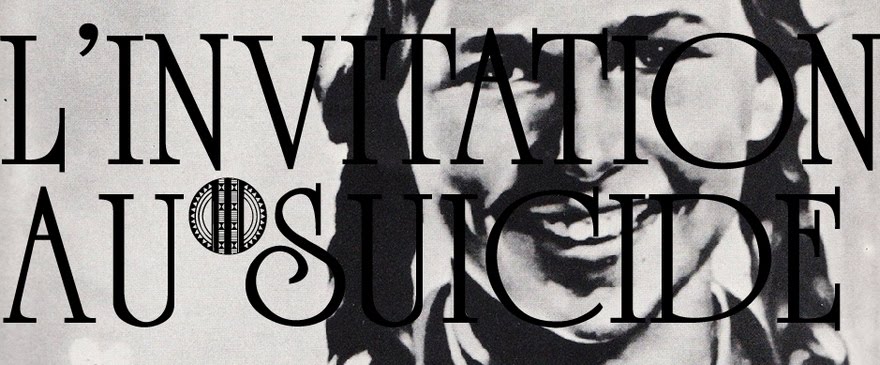 In the post-rock atlas, though labeled as freak-folk, Jackie-O Motherfucker more so assumed the mantle of the Fahey-ian troupe recollecting their traveling experiences, but whereas Fahey was the wise troubadour singing about his travels in the civilization, Jackie-O Motherfucker were intellectual freaks that sung about their experiences in the primeval jungle, as evident in the translucent, shaman abstract blues "Everyday". Then "Sun Ray Harvester" dispensed with the blues and was left with an abstract current of ritualistic ambience, and Doors-ian psychodrama a la "The End". It was a sound infused with jazz and ethnic flavours in "777", and then turned full circle in the electrifying jazz/ ethnic/ blues "Bus Stop".
In the post-rock atlas, though labeled as freak-folk, Jackie-O Motherfucker more so assumed the mantle of the Fahey-ian troupe recollecting their traveling experiences, but whereas Fahey was the wise troubadour singing about his travels in the civilization, Jackie-O Motherfucker were intellectual freaks that sung about their experiences in the primeval jungle, as evident in the translucent, shaman abstract blues "Everyday". Then "Sun Ray Harvester" dispensed with the blues and was left with an abstract current of ritualistic ambience, and Doors-ian psychodrama a la "The End". It was a sound infused with jazz and ethnic flavours in "777", and then turned full circle in the electrifying jazz/ ethnic/ blues "Bus Stop".
"Feast Οf Τhe Mau Mau" was their most jazz moment yet, but it was a primitive, ritualistic, atavistic jazz. In contrast, the essence of their music transubstantiated in a higher trance in "Fantasy Hay Co-Op", the tribal shamanism had apparently reached the spirit world. By "Breakdown", it wasn't as if the previous trance was revealed to be a temporary mirage, but more like the spiritual directions were being channeled in a more psychological direction, almost pathological, and ending in a fragile impressionist jam, the whole experience this fading away, being only a dream, a hypnosis. Get it here.

With Steven Stapleton (of Nurse With Wound fame) producing and participating, Malachai was a bit of an anomaly in the Dots' discography, no other album of theirs sounded like it, which proves how extensive Stapleton's contribution was.
"Joey The Canary" was a vibrant acid ballad, borrowing from an American Indian tribal ritual, and featuring a psychedelic screeching guitar solo. In contrast, "Kingdom Of The Flies" dived into the void of a catatonic psychedelic ballad, solemn, ethereal and graceful, with a mysterious and sinister epilogue. The Stapleton factor fired on all cylinders in "Encore Une Fois", a disjointed electronic lullaby, that felt like a magnet that dragged metallic musique-concrete arrangements, and moved them around at will. "Wildlife Estate" was just as weird, a freak soul-funk with expansive arrangements, as if a fusion collaboration between Frank Zappa and Syd Barrett.
Instead, "Pavane" was almost ambient jazz, abstract and cosmic, and with impressionist brush-strokes; it was an environment. Then "Window On The World", after a sinister and climactic noir-jazz first part (as if the soundtrack to a psychological thriller), it veered in a disorganized electronic jazz-ethnic march, bringing to mind both the anarchic spirit of Half Japanese and the junk culture of Faust, while the coda added further dysfunction, with a radio frequency going all wobbly and out of sync.
This dadaist mayhem also reminded of the collaboration between Ron Geesin & Roger Waters in Music From The Body. This was also echoed in the 19-minute "We Bring The Day", arguably the most ambitious piece, that assumed the forms of the fantasia, the requiem, the sonata, the folklore lullaby, the abstract symphony, the psychological ambient environment, and so forth. The lush jazz symphonic tapestry of "Paris 4 AM" was a fitting epilogue, as if the whole experience was a dream that faded away in the horizon. Get it here.


